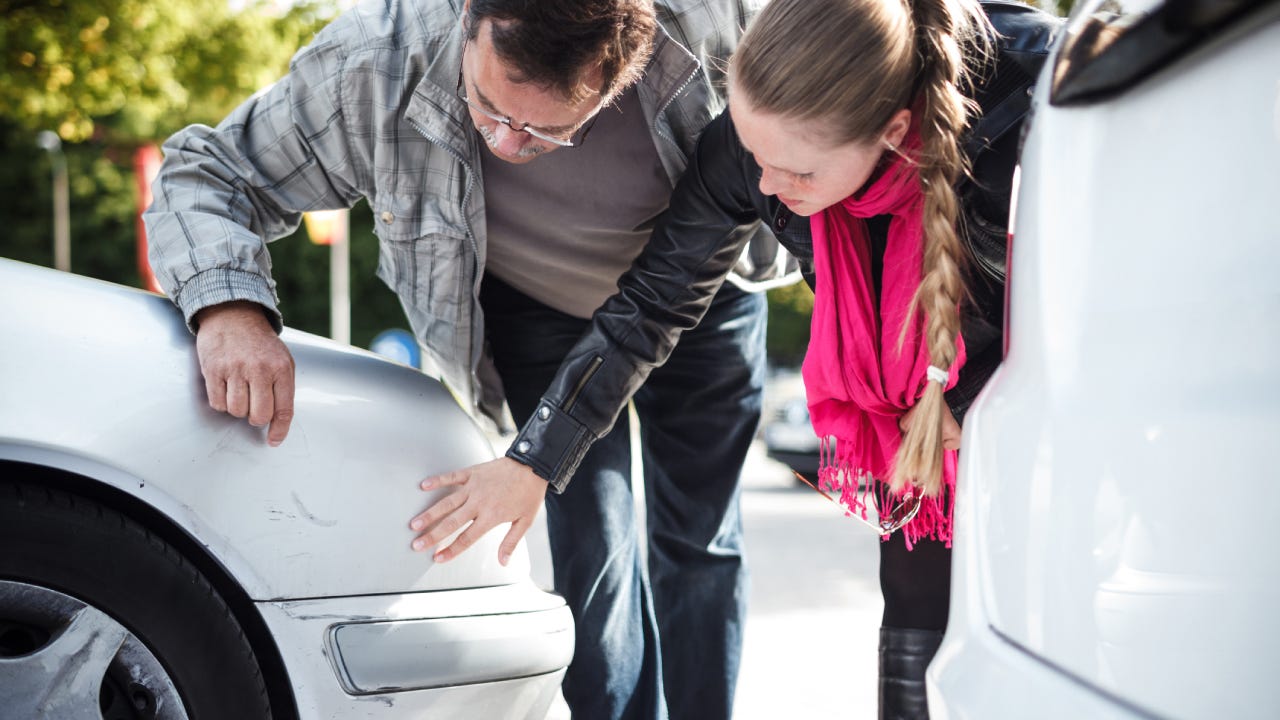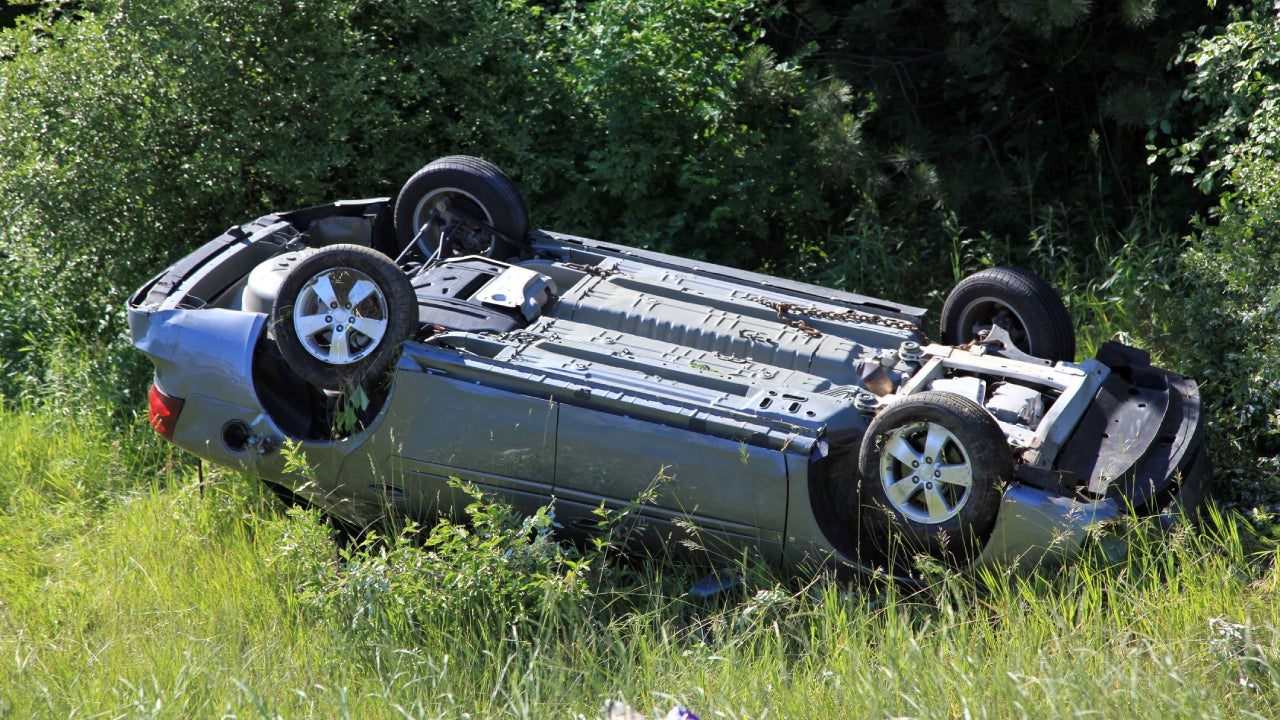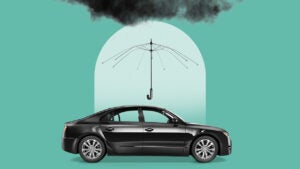Should you call your insurance company after a minor accident?




Getting into a car accident, no matter how serious it may be, can be a frightening experience. Even if you experience a minor accident, it is good to know that your insurance coverage is there to cover any damage. But if the accident is minor enough, you might wonder if it is worth calling your insurance company at all and risking seeing your premiums rise. If you’re wondering what happens if you don’t call your insurance after an accident, this guide will help you figure out what to expect.
Should I pay out of pocket for a car accident?
Choosing to pay out of pocket for a car accident always comes with a certain level of risk. With that being said, using insurance may not always be required. Not using insurance to cover an accident means that your premium should not increase due to a claim, which is a major benefit. Here are some types of accidents where using your car insurance may not be necessary:
An inexpensive accident with just you or your car
Sometimes accidents don’t involve other drivers. If you get into a minor collision that doesn’t involve anyone else or another car, such as hitting a sign or pole in a parking lot, you can choose not to report the accident and get it repaired by paying out of pocket. You’ll have to pay for the damage yourself, whether it’s buffing out a dent or fixing a crack in your glass. It’s possible that your insurance deductible is higher than the out of pocket cost, so you may save money by choosing to pay for it on your own.
Very minor accident with one other driver
If you are involved in a minor collision with another driver, such as a rear-ending at a low speed or bumping another car in a parking lot, it’s worth assessing how much damage is done. If it is minor enough that you and the other driver are comfortable settling it by paying for the damage out of pocket, it may prove cheaper than involving your insurance companies.
However, part of the value of going through insurance is having a mediator. There is no method to hold the parties accountable for promises or determining who is at fault without insurance involvement. No matter what, make sure you do not leave the scene of an accident without first talking to the other driver and agreeing on whether or not insurance will be involved in settling the loss.
When to contact your insurance company
Car insurance is designed to protect your finances in the event of an accident, whether you cause a collision or get hit by another driver. While you might be able to get away with not contacting your insurance company after some accidents, more often than not, you will need to notify them. Here are some situations where you should always contact your insurance company:
Someone was injured
If you or the other driver involved in a collision are injured, you need to contact your insurance company. The bodily injury liability portion of an insurance policy typically covers injuries to the other driver in an at-fault accident. Personal injury protection or medical payments coverage, if available on your policy, could also help cover injury-related costs for you or passengers in your vehicle. Medical bills after an accident can be expensive, even if the injuries are minor. Using your insurance could save you a lot of money that would otherwise come out of pocket.
You do not trust the other driver
If you are involved in an accident with another driver, you can discuss who is responsible and who will pay without involving insurance. But if you do not feel like you can trust the other driver, can’t agree on who is responsible for the accident, or think they may make fraudulent charges against you, then it is best to call insurance and let your provider negotiate those challenges.
Make sure you take photos and videos of the accident. Consider contacting the police to get a record of the accident and your account of what happened recorded by a third party.
The costs will be expensive
If you are involved in an accident where there is extensive damage, you should contact your insurance company right away. Your property damage liability (PDL) will typically cover repairs to the other drivers’ vehicle if you are at fault, and likewise their insurance should cover damage to your car if they are responsible for causing the accident.
Typically, if you are at fault for an accident, the cost of repairs to both vehicles will be steep and more than most would want to pay out of pocket. Full coverage, which generally means comprehensive and collision coverage are also on your policy, can help cover repair costs to your vehicle in these scenarios.
Things to consider before paying for an accident out of pocket
If you decide to pay for an accident out of pocket, you should consider a few things first. Even if a collision is minor and there are no injuries, that does not automatically mean that avoiding insurance is the right move. Here are a few things to think about:
Make sure the damage estimate is correct
First, make sure that the estimated repair cost for any damage is accurate. Do not rely on a quick search to see what a certain repair might cost. Instead, go to a local body shop and have a mechanic give you a quote after examining the vehicle in person. The damage estimate may be significantly higher than expected. There could be internal damage that you can’t physically see, which might lead to more extensive costs. You’ll want this evaluation as soon as possible, to avoid any challenges with filing a claim should you decide to move forward with filing one.
You may not be able to trust the other driver
Deciding to pay out of pocket is an exercise in trust, as the other person could choose to make an insurance claim without telling you. If you have any doubts, it is best to contact your insurance company and allow it to communicate with the other driver and determine who is responsible and who will pay.
You might have accident forgiveness
Some drivers have accident forgiveness included in their car insurance policy. With accident forgiveness, your rate with your current insurance company may not increase after your first at-fault accident. If you have first accident forgiveness, you might decide to contact your insurance company and file a claim, as it should not have any impact on your premium.
If you get a new quote, you may have to disclose the accident
When you get a car insurance quote, you are typically asked to disclose any recent accidents or traffic violations you previously had. A pending or open claim with your current insurer could jeopardize your ability to get coverage with a new company until that claim is resolved. If you filed a claim, your accident might still impact your quotes with other companies because that accident was only forgiven by your current insurer. It may also prevent your eligibility to get accident forgiveness coverage with another company for a few years.
Frequently asked questions
-
This can be a tricky situation. If the damage caused has already been assessed by an expert and the associated costs are known, then it may be okay if the at-fault driver wants to pay out of pocket. However, there are some potential concerns to be aware of. There is no documentation or paper trail of liability in a situation like this, meaning that if there is more damage to yourself or your vehicle than initially realized, it could be challenging for you to receive any further money for these issues. When a person pays out of pocket like this, it may be because they do not have insurance or are trying to keep the accident and resulting claim from increasing their premiums. The end result is that you, the victim, will have less legal and financial protection in place to ensure you are appropriately compensated.
-
No, your insurance premium should not increase if you decide to pay for accident damage out of pocket. However, if the other driver decides to file a claim without you knowing, your insurance rate could increase.
-
Insurance companies typically learn your accident history by examining your driving record or tracking loss data, which includes the insurance claims you make and the paid claims. If you don’t file a claim for an accident and the police aren’t called to the scene, it’s unlikely that your insurance company will find out about the accident. However, if you file a claim or the other party files a claim against you for the damage or law enforcement is called to respond, your insurer will likely find out that you were involved in an accident.
-
As of 2021, the average cost of a property damage-only car accident was $5,700, according to the National Safety Council (NSC). The true cost of repairs will vary depending on the severity of the accident, where you go for the repair, the type of material available to make the replacements, the repairs required, and the cost of replacement parts and labor.
According to the Insurance Information Institute, vehicle replacement costs increased a cumulative 45.5 percent between 2019 and 2022 due to supply chain disruption and inflationary trends.
-
If your car insurance rate increases after an accident, you can take steps to lower it. The easiest way to lower your rate is often to shop around and get quotes to find out if you can lower your rate by switching to a different provider. It may also benefit you to consider raising your deductibles, which can, in turn, lower your premium. However, it’s important that you choose a deductible that you can afford to pay out of pocket, so make sure that the deductible you’re choosing makes sense with your budget. Your insurer may also offer discount opportunities, like a discount for taking a defensive driving class. Consider signing up for telematics-based insurance policies, which will lower your rate based on car usage and recorded driving habits. You can also lower your rates through other methods, such as signing up for autopay or bundling insurance policies.
Why we ask for feedback Your feedback helps us improve our content and services. It takes less than a minute to complete.
Your responses are anonymous and will only be used for improving our website.
You may also like

Car insurance after a hit-and-run in Michigan

What is total loss car insurance?




